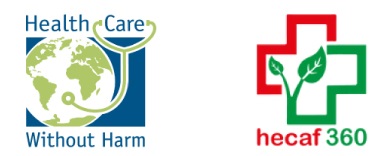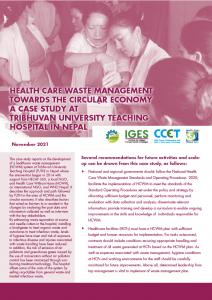This case study reports on the development of a healthcare waste management (HCWM) system at Tribhuvan University Teaching Hospital (TUTH) in Nepal where the intervention began in 2014 with support from HECAF 360, a local NGO, and Health Care Without Harm (HCWH), an international NGO, and WHO Nepal. It describes the approach and path followed by TUTH in the area of HCWM and the circular economy. It also describes factors that acted as barriers to or assisted in the changes by analysing the past data and information collected as well as interview with the key stakeholders.
By enhancing waste separation at source and needle cutters in the hospital, installing a bio-digester to treat organic waste and autoclaves to treat infectious waste, levels of hygiene have risen and risk of exposure to infectious disease and injuries associated with waste handling have been reduced. In addition, the risk of emission of air pollutants and greenhouse gases caused by the use of incinerators without air pollution control has been minimized through non-burning treatment technology. The hospital offsets some of the costs of the system by selling recyclables from general waste and treated infectious waste.


